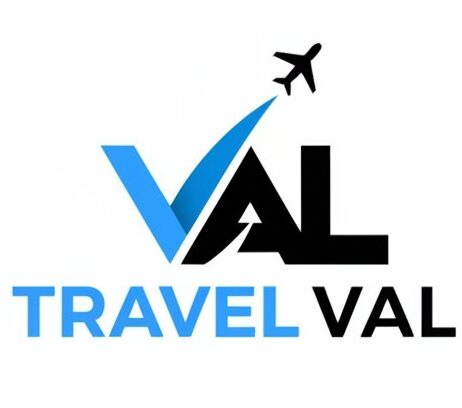UK Investor Visa Program: How to Get Permanent Residency Through Investment
The UK Investor Visa Program landscape has undergone dramatic changes that every prospective immigrant and immigration lawyer must understand. While the traditional Tier 1 Investor Visa route permanently closed in February 2022, alternative pathways for wealthy individuals seeking UK residency remain available through specialized investment schemes and business immigration routes.
For high-net-worth individuals considering UK immigration, understanding these alternatives is crucial for financial planning, especially when considering the broader implications for healthcare access, insurance requirements, mortgage eligibility, and long-term financial settlement in the UK. Whether you’re exploring business investment opportunities, seeking legal settlement through alternative visa categories, or planning your financial future including credit establishment and property investment, this comprehensive guide will navigate you through the current UK immigration investment landscape.
The closure of the traditional investor route has created uncertainty for many, but experienced immigration lawyers specializing in UK investment cases continue to help clients access residency through innovative business ventures, startup investments, and other qualifying pathways. Understanding these options is essential for making informed decisions about your UK immigration journey and associated financial commitments.
Current Status: The End of the Traditional UK Investor Visa
The 2022 Closure and Its Impact
On February 17, 2022, the UK government permanently suspended the Tier 1 Investor Visa route, marking the end of an era for direct investment-based UK immigration. This decision, driven by security concerns and anti-money laundering measures, particularly following geopolitical tensions with Russia, has forced prospective immigrants and their legal representatives to explore alternative pathways.
The closure affects not only immigration lawyers and their clients but also has broader implications for financial planning, including how investors approach UK property markets, insurance requirements, and long-term financial settlement strategies. For those who had been planning their UK immigration journey around the investor visa route, this change necessitates completely restructuring their approach to both immigration and financial planning.
Rights of Existing Visa Holders
Current Tier 1 Investor Visa holders retain their rights and can still apply for extensions and eventual settlement. However, they must maintain their investment requirements and comply with ongoing obligations. This includes ensuring their UK-based investments remain compliant, maintaining appropriate insurance coverage, and meeting residence requirements that may affect their access to UK healthcare systems and other benefits.
For existing holders, working with immigration lawyers experienced in investor visa compliance remains crucial, particularly when navigating the intersection of immigration law and UK financial regulations, including those affecting mortgage applications, credit establishment, and access to UK financial services.
Alternative Investment-Based Immigration Routes
The Innovator Founder Visa: A New Path Forward
The Innovator Founder Visa represents the most viable alternative for investment-focused UK immigration. With a minimum investment requirement of £50,000, this route offers a more accessible entry point while still providing a clear path to UK settlement within three years.
Key Requirements:
- Minimum £50,000 investment in an innovative UK business
- Endorsement from an approved endorsing body
- Demonstration of innovation, viability, and scalability
- Active role in business management and development
This route appeals to entrepreneurs who can demonstrate business acumen and innovation. Success often requires comprehensive business planning, including financial projections that account for UK operational costs, insurance requirements, potential healthcare expenses, and long-term growth strategies.
Immigration lawyers specializing in business immigration can provide crucial guidance on structuring investments to meet endorsement requirements while optimizing for UK tax efficiency and compliance. The business plan must demonstrate not only innovation but also financial sustainability, often requiring detailed financial modeling and professional advisory services.
Start-up Visa Route
The Start-up Visa offers another pathway, though without direct settlement rights. This two-year visa requires no minimum investment but demands endorsement for an innovative business idea with scalability potential.
While not providing immediate settlement prospects, the Start-up Visa can serve as a stepping stone to other immigration categories or business development that may qualify for future investment-based applications. Success in this category often requires understanding UK business registration, insurance requirements, and financial compliance frameworks.
Global Talent Visa for Investors
The Global Talent Visa route may suit investors with exceptional backgrounds in specific fields, including fintech, digital technology, or other innovation sectors. While not traditionally an investment visa, individuals with significant investment experience and recognition in their fields may qualify.
This route provides fast-track settlement options and can be particularly valuable for those involved in UK investment markets, including those with expertise in financial technologies, digital currencies, or innovative financial services.
Financial Planning and UK Settlement Considerations
Banking and Credit Establishment
Successfully settling in the UK through any investment-based route requires establishing a solid financial foundation. New UK residents often face challenges in accessing traditional banking services, credit facilities, and insurance products due to limited UK credit history.
Credit Building Strategies:
- Opening UK bank accounts with international banking relationships
- Establishing utility accounts and regular payment histories
- Considering secured credit products for credit history development
- Working with financial advisors familiar with immigrant financial needs
Immigration lawyers often work closely with financial advisors to help clients understand the relationship between immigration status and access to UK financial services. This includes guidance on mortgage eligibility, insurance requirements, and credit establishment strategies that complement immigration planning.
UK Healthcare Access and Insurance
Understanding UK healthcare access is crucial for investment-based immigrants. While the NHS provides comprehensive healthcare, private insurance often remains important for immediate access and specialized care.
Healthcare Considerations:
- NHS eligibility based on immigration status and residency requirements
- Private healthcare insurance options and costs
- International health insurance coordination
- Specialized medical insurance for pre-existing conditions
The intersection of immigration status and healthcare access affects financial planning significantly. Immigration lawyers advising on investment-based routes must consider how different visa categories affect healthcare entitlements and associated costs.
Property Investment and Mortgage Access
Many investment-based immigrants view UK property as both a residence solution and investment opportunity. However, mortgage access can be challenging for new UK residents, regardless of their wealth or investment capacity.
Property Finance Considerations:
- Mortgage eligibility based on immigration status
- Deposit requirements for non-resident investors
- Buy-to-let investment opportunities and regulations
- Property insurance and legal requirements
Specialist mortgage brokers working with immigration lawyers can provide integrated advice on property investment strategies that complement immigration planning. This includes understanding how different visa categories affect mortgage eligibility and structuring property investments to meet both immigration and financial objectives.
Legal and Professional Advisory Requirements
Choosing Immigration Lawyers
Successfully navigating alternative investment-based UK immigration requires experienced legal representation. The complexity of business immigration routes, endorsement requirements, and ongoing compliance obligations makes professional legal guidance essential.
Selecting Immigration Lawyers:
- Experience with business and investment-based immigration
- Understanding of UK business registration and compliance
- Relationships with endorsing bodies and advisory services
- Track record with alternative investment routes
Immigration lawyers specializing in investment-based cases often work with broader advisory teams, including tax specialists, business advisors, and financial planners, to provide comprehensive guidance on both immigration and settlement planning.
Tax Planning and Compliance
UK tax implications for investment-based immigrants can be complex, particularly for high-net-worth individuals with international assets and income streams.
Tax Considerations:
- UK tax residence rules and implications
- Non-domiciled status planning and remittance basis taxation
- Capital gains tax on UK and international investments
- Inheritance tax planning for international families
Working with tax advisors who understand both UK taxation and international tax planning is crucial for optimizing the financial aspects of UK immigration. This includes understanding how different investment structures affect both immigration compliance and tax efficiency.
Insurance and Risk Management
Comprehensive insurance planning is essential for investment-based UK immigrants, covering both personal and business risks.
Insurance Requirements:
- Personal liability insurance for business activities
- Professional indemnity insurance for business operators
- Property and asset protection insurance
- International travel and medical insurance coordination
Insurance planning must coordinate with immigration requirements, particularly for business-based routes where professional indemnity and business insurance may be endorsement requirements.
Alternative Countries and Comparative Analysis
European Investment Programs
With the UK investor visa route closed, many prospective immigrants consider European alternatives, including Portugal’s Golden Visa program, Ireland’s Immigrant Investor Programme, and other EU investment-based residency options.
Comparative Considerations:
- Investment thresholds and requirements
- Settlement timelines and citizenship pathways
- Tax implications and optimization opportunities
- Healthcare access and social benefits
Immigration lawyers often provide comparative analysis of different international investment immigration programs, helping clients understand how various options align with their personal, business, and financial objectives.
Global Investment Immigration Trends
The global investment immigration market continues evolving, with various countries adjusting their programs in response to security concerns, economic objectives, and international compliance requirements.
Understanding global trends helps prospective immigrants and their advisors develop comprehensive strategies that may include multiple jurisdiction considerations, backup planning, and long-term mobility optimization.
Emerging Opportunities and Future Considerations
Technology and Innovation Focus
The UK’s emphasis on innovation and technology creates opportunities for investment-based immigration through business routes focused on emerging sectors, including fintech, digital technologies, and sustainable business models.
Emerging Sectors:
- Financial technology and digital banking solutions
- Sustainable energy and environmental technologies
- Healthcare technology and digital health solutions
- Advanced manufacturing and Industry 4.0 applications
These sectors often attract endorsement body support and may provide enhanced prospects for successful business immigration applications.
Post-Brexit Opportunities
Brexit has created both challenges and opportunities for investment-based UK immigration. While some traditional routes have closed, the UK’s focus on global talent attraction and business innovation may create new pathways for qualified investors and entrepreneurs.
Understanding how Brexit affects UK immigration policy, business regulations, and international trade relationships is crucial for developing effective investment-based immigration strategies.
Practical Implementation Strategies
Timeline and Process Management
Successfully pursuing alternative investment-based UK immigration requires careful timeline management and process coordination. Unlike the straightforward investor visa route, business-based alternatives involve multiple stages, endorsement processes, and ongoing compliance requirements.
Process Management:
- Business plan development and endorsement application
- Investment structuring and UK business establishment
- Ongoing compliance monitoring and reporting
- Settlement application preparation and submission
Working with experienced immigration lawyers who understand both the legal requirements and practical implementation challenges is essential for success.
Risk Assessment and Mitigation
Alternative investment-based immigration routes carry different risk profiles compared to traditional investor visas. Understanding and mitigating these risks is crucial for successful outcomes.
Risk Considerations:
- Endorsement body requirements and approval uncertainties
- Business performance requirements and monitoring
- Compliance obligations and potential consequences
- Settlement timeline uncertainties and planning implications
Comprehensive risk assessment should include both immigration-specific risks and broader business and financial risks associated with UK business establishment and operation.
Financial Services and Support Systems
Banking Relationships and Services
Establishing appropriate UK banking relationships is fundamental for investment-based immigrants, affecting everything from business operations to personal financial management and compliance with immigration requirements.
Banking Considerations:
- International banking relationships and UK branch services
- Business banking requirements for new UK companies
- Personal banking for high-net-worth individuals
- Currency management and international transfer services
Many international banks offer specialized services for investment-based immigrants, including dedicated relationship management and coordinated services across multiple jurisdictions.
Investment Management and Advisory Services
Managing investments while pursuing UK immigration requires specialized expertise that coordinates investment performance with immigration compliance requirements.
Investment Management:
- UK business investment management and performance monitoring
- International asset management and coordination
- Tax-efficient investment structuring
- Compliance reporting and documentation
Working with investment managers who understand immigration requirements ensures that investment decisions support rather than compromise immigration objectives.
Conclusion: Navigating the New UK Investment Immigration Landscape
While the closure of the traditional UK Investor Visa program represents a significant shift in UK immigration policy, alternative pathways remain available for determined investors and entrepreneurs. Success in the current environment requires comprehensive planning that integrates immigration strategy with business development, financial planning, and ongoing compliance management.
The key to success lies in understanding that modern UK investment immigration is no longer about passive investment but requires active business engagement, innovation demonstration, and long-term commitment to UK business development. This shift demands more sophisticated planning but can ultimately provide more meaningful integration into UK business and social communities.
Working with experienced immigration lawyers, business advisors, and financial planners who understand the integrated nature of modern investment immigration is essential. The complexity of current routes rewards thorough preparation and professional guidance while penalizing oversimplified approaches that fail to address the full scope of requirements and implications.
For prospective UK immigrants with significant investment capacity, the current landscape offers opportunities for those willing to engage actively in UK business development and innovation. While the path may be more complex than traditional investor routes, the potential rewards include not only UK residency and eventual citizenship but also meaningful participation in the UK’s dynamic business environment.
Success requires patience, flexibility, and comprehensive professional guidance, but the fundamental objective of achieving UK residency through investment remains achievable for qualified applicants willing to navigate the evolved landscape of UK investment immigration.






